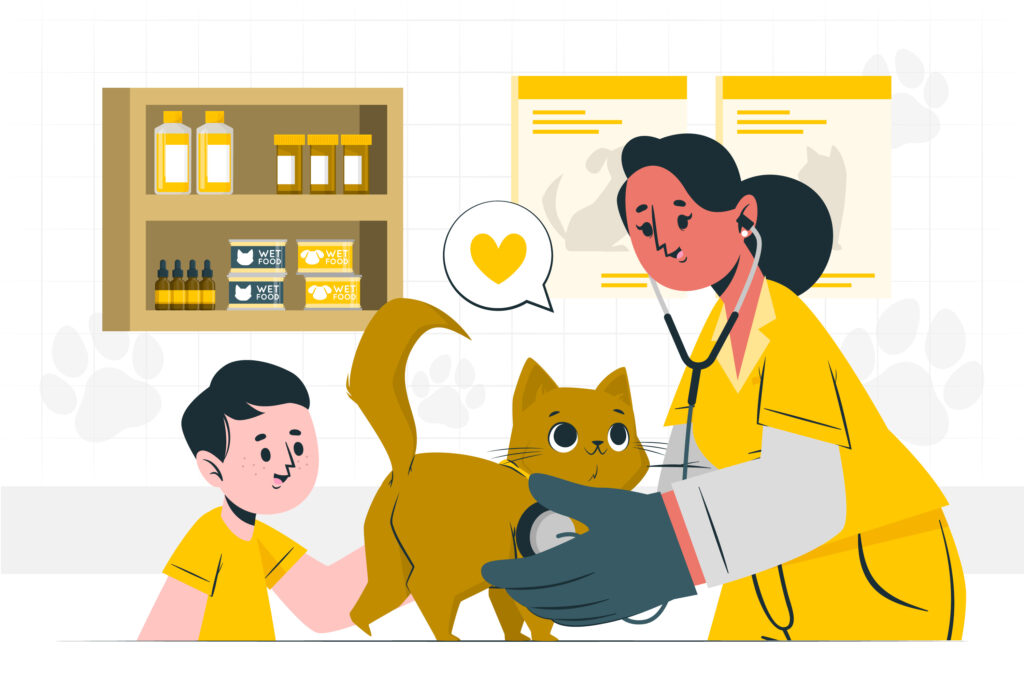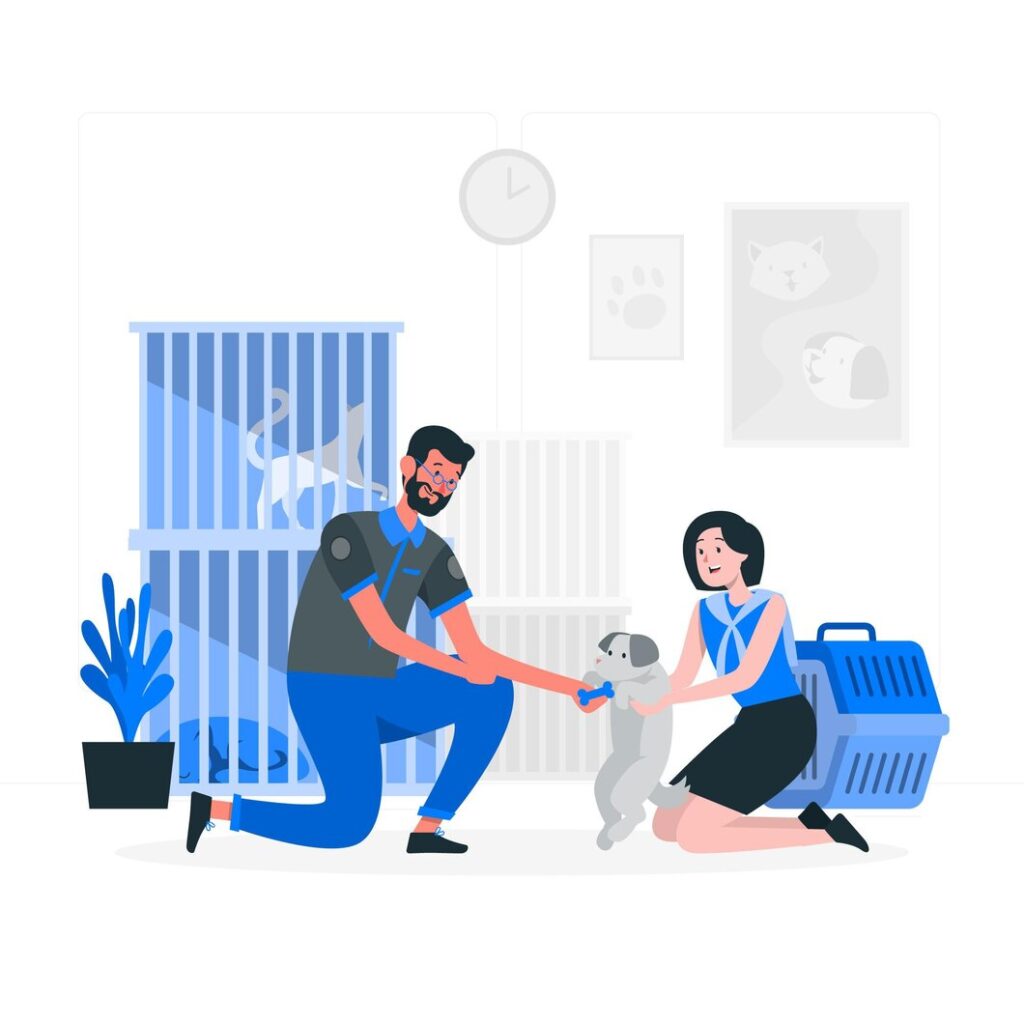10 Common Signs Your Pet Needs a Vet Visit
As a devoted pet parent, ensuring your furry friend’s health and happiness is always a top priority. However, pets can’t directly tell us when they’re not feeling well. Instead, they rely on their behavior and physical condition to communicate their needs. Recognizing these signs early can be critical in addressing potential health issues. In this blog, we’ll cover 10 common signs that your pet may need a vet visit, helping you make informed decisions about their care.
1. Sudden Changes in Eating Habits
A change in your pet’s eating habits can be one of the first signs of a health issue.
- Loss of Appetite
If your pet skips meals for more than a day or two, it could indicate dental pain, gastrointestinal issues, or kidney problems. - Excessive Eating
Overeating or sudden hunger can be a sign of diabetes, hormonal imbalances, or stress.

2. Unusual Drinking Patterns
Your pet’s water consumption is another key health indicator.
- Drinking Too Much
Excessive thirst might point to conditions such as diabetes, kidney disease, or hormonal issues. - Dehydration or Reduced Drinking
A sudden drop in water intake can cause dehydration, which may accompany other illnesses.
3. Drastic Weight Changes
Weight fluctuations in pets are rarely normal and should be addressed promptly.
- Weight Loss
Rapid weight loss can indicate parasites, cancer, or chronic conditions. - Weight Gain
Unexpected weight gain may be linked to thyroid problems or hormonal imbalances.

4. Persistent Vomiting or Diarrhea
While occasional stomach upsets might not be concerning, persistent vomiting or diarrhea could signal serious issues.
- When to Worry:
Look out for blood, lethargy, or refusal to eat, which require immediate attention.
5. Lethargy or Low Energy Levels
If your pet seems unusually tired or uninterested in activities they usually enjoy, it could indicate underlying health problems such as infections, anemia, or chronic illnesses.
- Tip:
Monitor their activity levels and consult a vet if lethargy persists beyond a day.
6. Coughing or Sneezing
Coughing and sneezing aren’t always harmless.
- Coughing:
It may signal respiratory infections, heart issues, or even kennel cough. - Sneezing and Discharge:
Persistent sneezing with nasal discharge could point to allergies or respiratory conditions.
7. Limping or Difficulty Moving
Mobility issues, such as limping or stiffness, can result from injuries, arthritis, or other joint problems.
- Signs to Watch:
Swelling, difficulty climbing stairs, or reluctance to move are all red flags.
8. Skin Problems and Hair Loss
Skin and coat health are vital indicators of your pet’s overall well-being.
- Skin Irritations:
Look out for redness, bumps, or excessive scratching, which may indicate dermatitis or allergies. - Hair Loss:
Bald spots or thinning hair can point to stress, fungal infections, or hormonal imbalances.
9. Behavioral Changes
Any sudden shifts in your pet’s behavior could signal discomfort or health problems.
- Aggression or Anxiety:
Unusual aggression or nervous behavior might stem from pain or illness. - Clinginess or Isolation:
If your pet becomes overly clingy or starts hiding, it could indicate emotional or physical distress.

10. Trouble Urinating or Defecating
Difficulties in urination or bowel movements can point to significant health concerns.
- Signs of Concern:
Straining, blood in urine, or unusual frequency might indicate urinary tract infections or bladder stones.
Why Early Detection Matters
Pets are experts at masking pain, so by the time symptoms become noticeable, the condition may already be advanced. Routine check-ups and early intervention play a vital role in keeping your pet healthy and preventing more serious health complications.
What Should You Do Next?
If you notice any of these signs in your pet, don’t wait—schedule a vet visit as soon as possible. Regular check-ups, even when your pet seems healthy, can also help detect potential issues early and ensure they remain happy and healthy for years to come.
FAQs
- How often should I take my pet to the vet?
Annual check-ups are ideal, but older pets or those with chronic conditions may need more frequent visits. - What should I do if my pet stops eating?
If the loss of appetite lasts more than 24 hours, consult your vet immediately. - Can behavioral changes indicate illness?
Yes, changes in behavior like aggression or withdrawal often signal discomfort or health issues. - Why is my pet drinking so much water?
Excessive thirst can be a symptom of diabetes, kidney disease, or other medical conditions. - Is vomiting always a concern?
Occasional vomiting may not be worrisome, but persistent or severe vomiting requires medical attention. - What are the signs of dehydration in pets?
Dry gums, sunken eyes, and lethargy are common signs of dehydration. - Can pets get seasonal allergies?
Yes, pets can suffer from environmental allergies, causing sneezing, itching, and skin irritations. - When should I be worried about my pet’s weight?
Any sudden or unexplained weight change warrants a vet visit. - What causes skin problems in pets?
Allergies, parasites, and fungal infections are common causes of skin irritations. - What qualifies as a veterinary emergency?
Difficulty breathing, seizures, or severe bleeding are emergencies requiring immediate attention.
Taking care of your pet’s health involves vigilance, love, and timely action. By recognizing these common signs and acting promptly, you can ensure a long, happy, and healthy life for your beloved companion. For more expert advice, visit www.cadovet.com.
